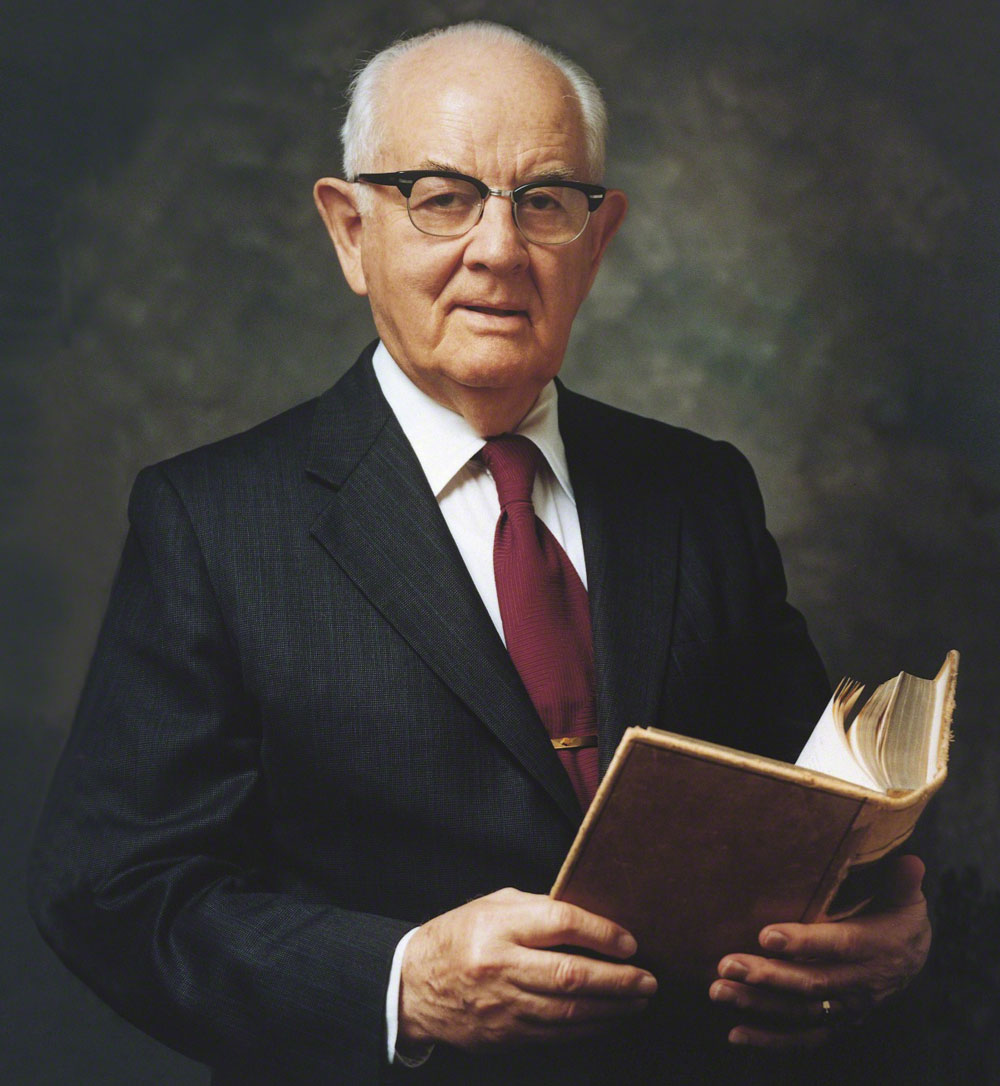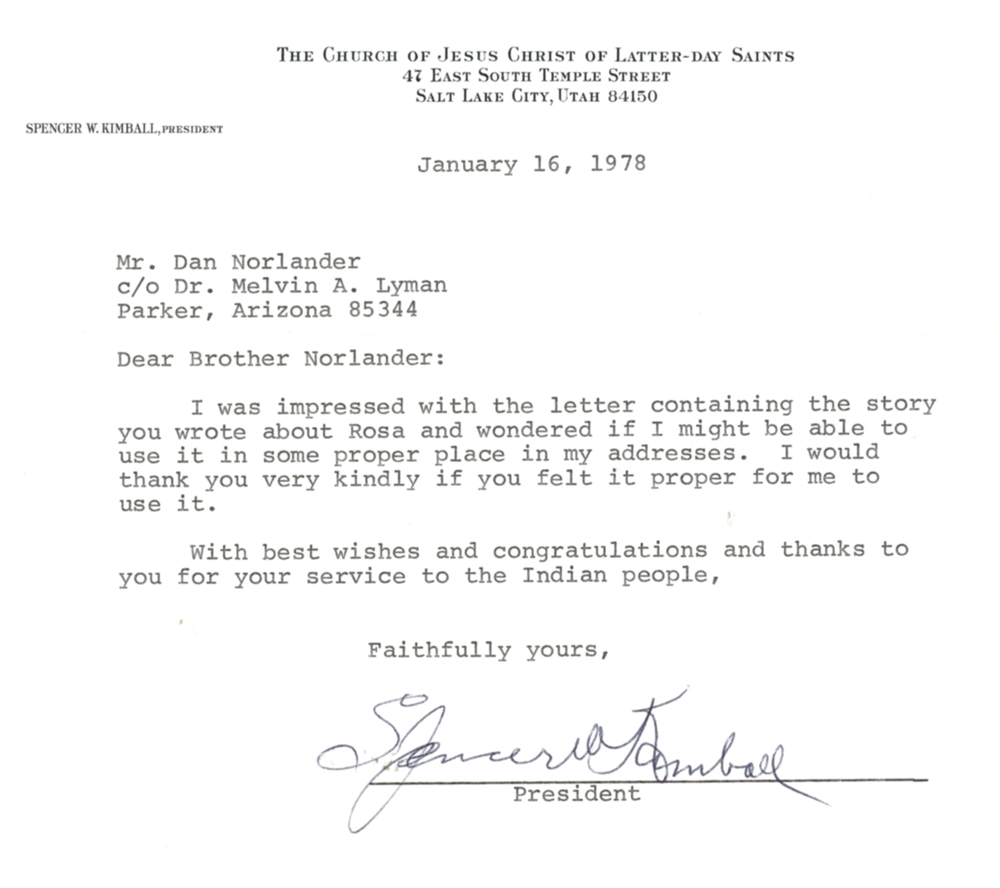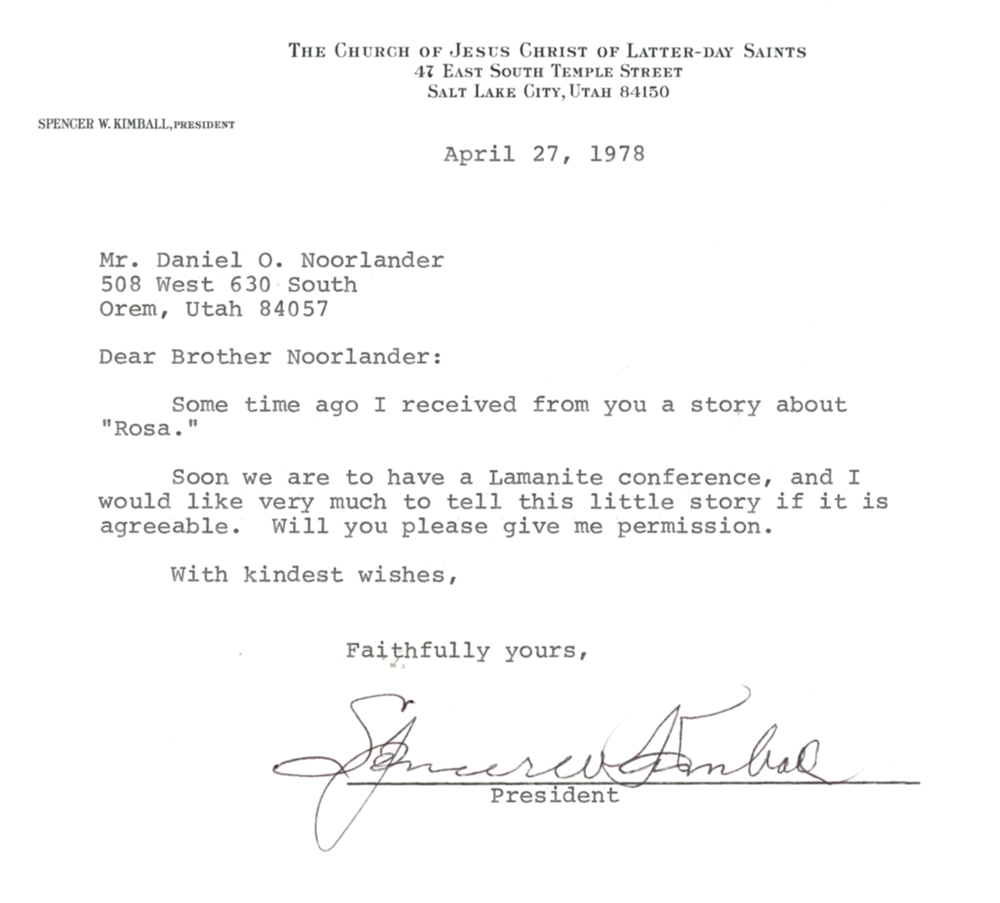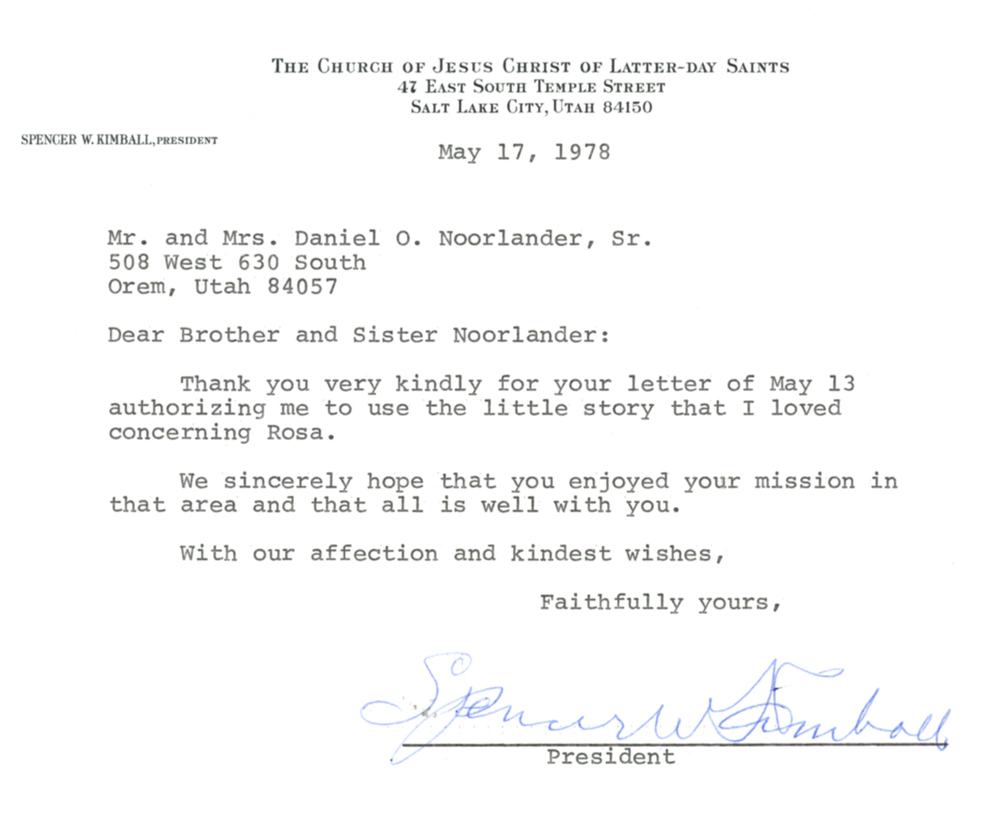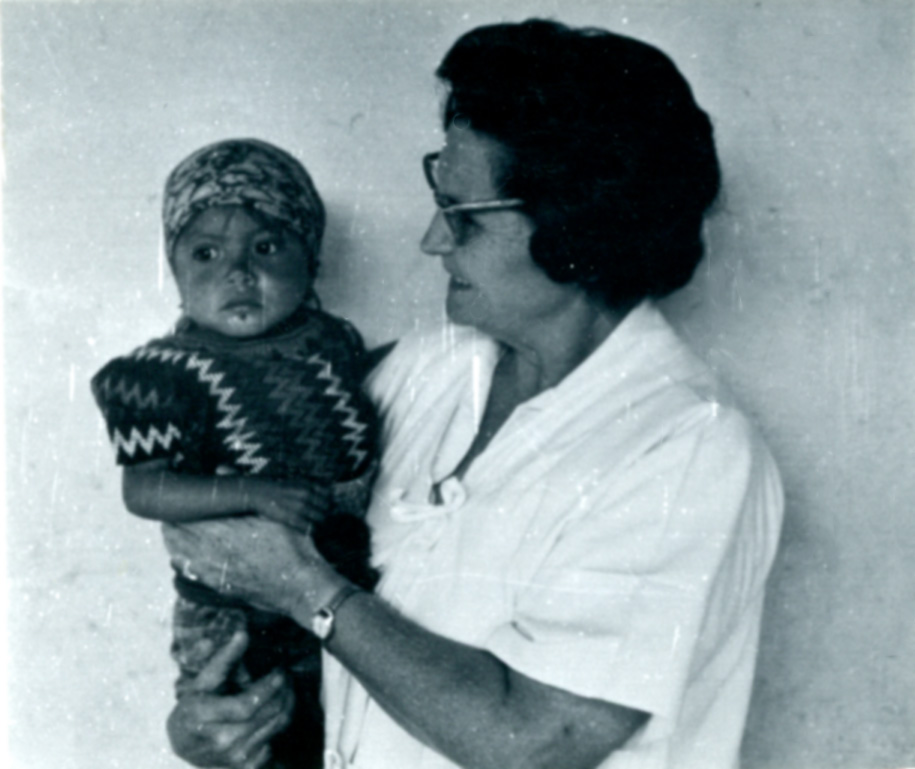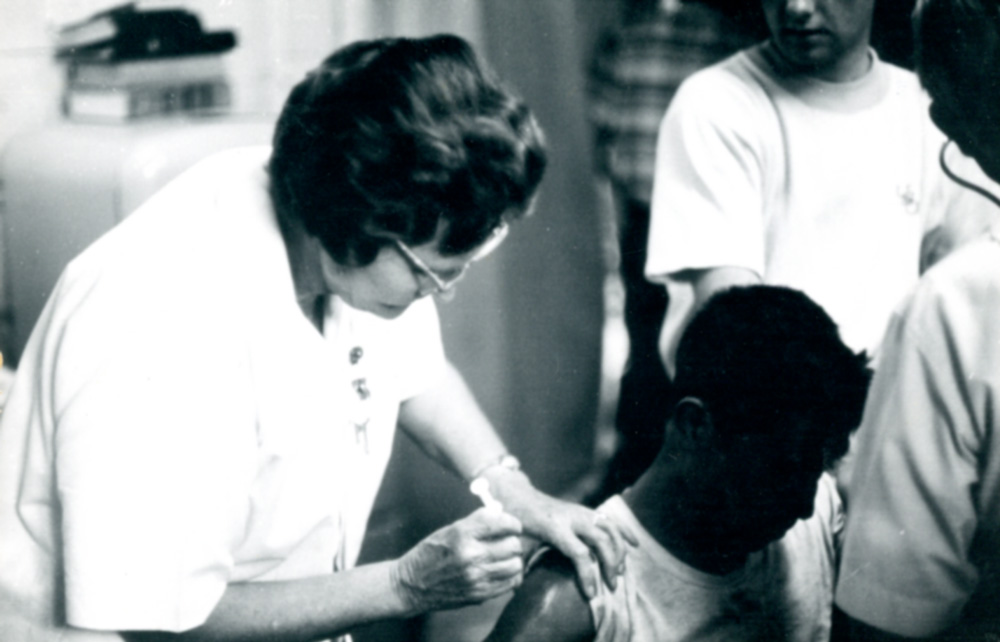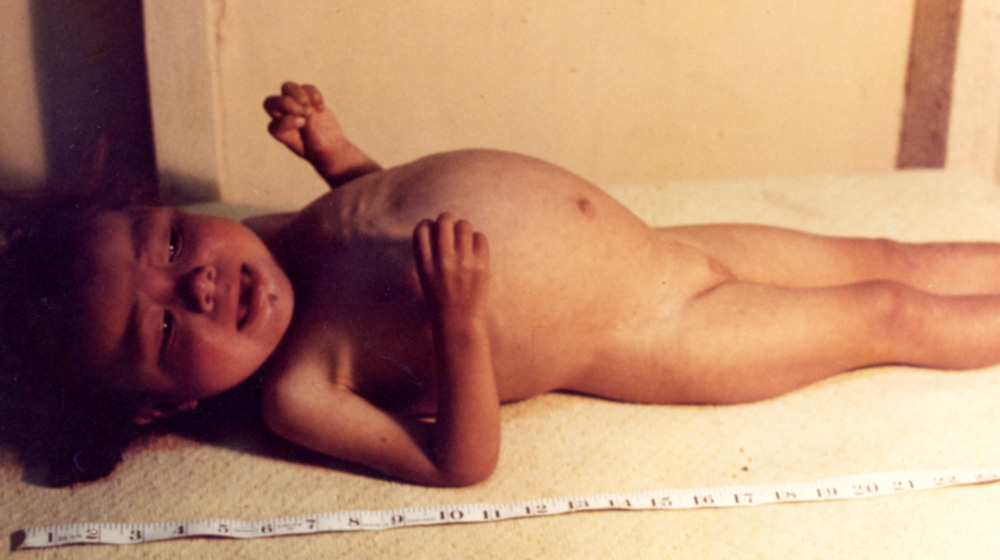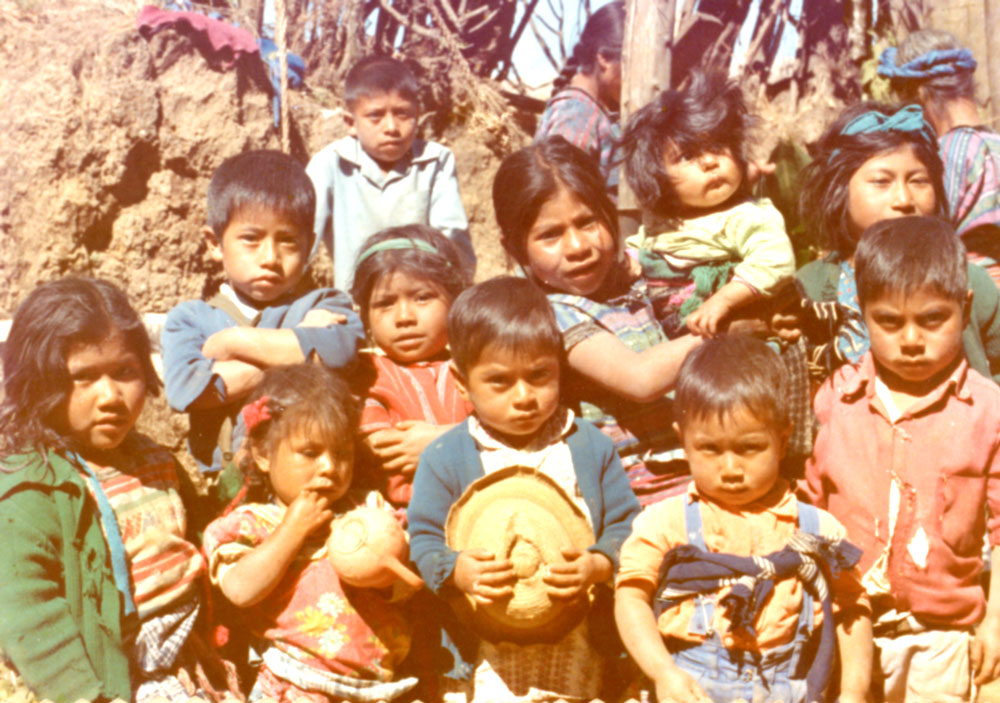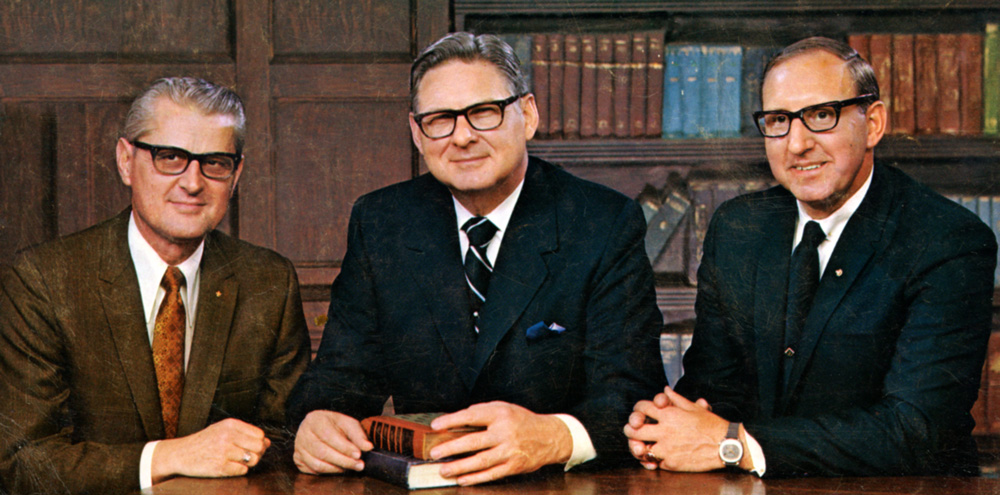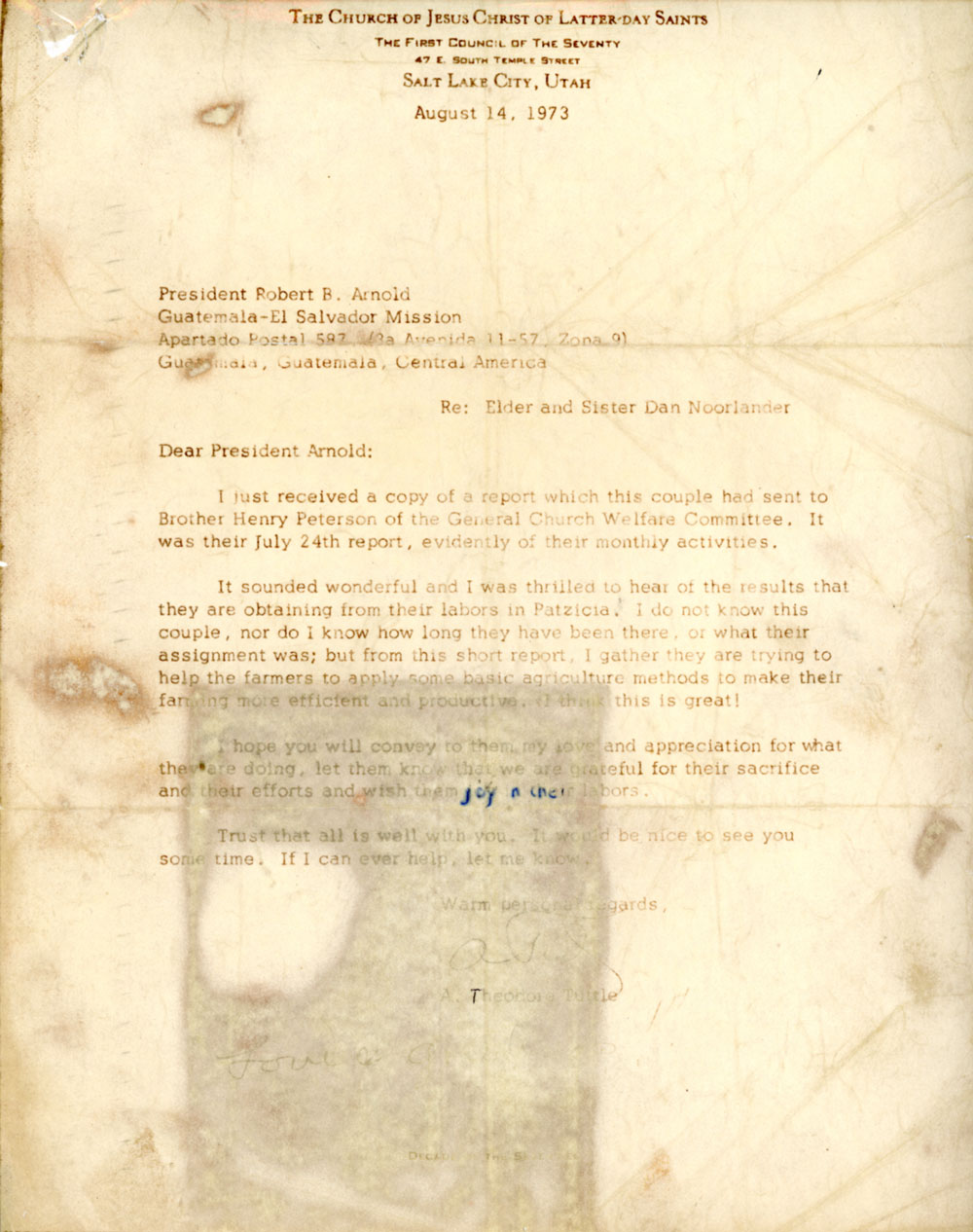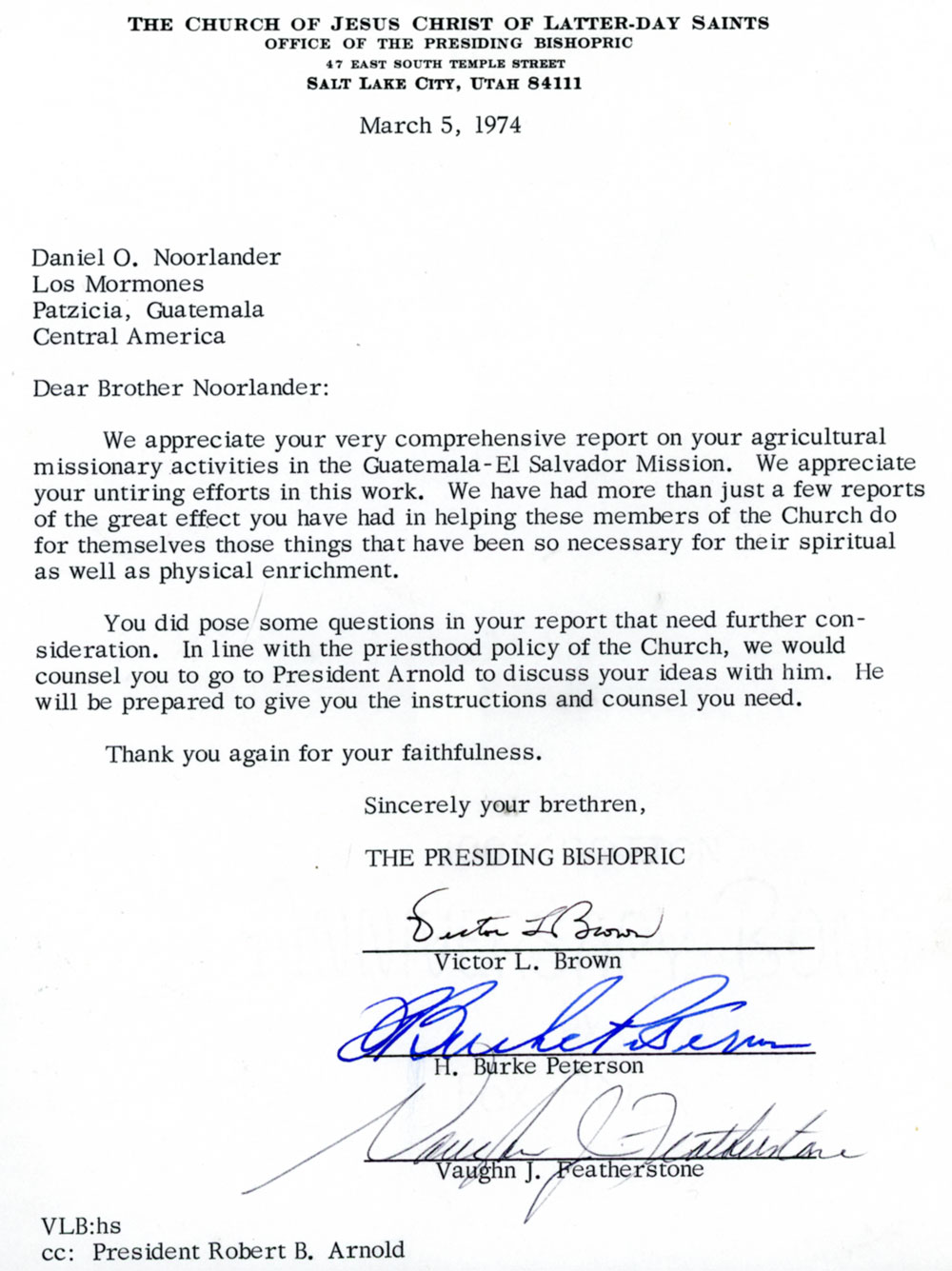Rosa’s Story
Dorothy Jepson’s account of a little girl named Rosa, as she told it to Elder Noorlander in 1974.
Even though Sister Dorothy Jepson was in a hurry, she noticed that six year old Juan Lux had never been to the clinic before. The way he walked close to his father’s legs, and the way his large brown eyes blinked as he looked around the room told her so.
The Clinic wasn’t much by American standards, but it meant a lot to people who lived in one room adobe huts. The light from the tiny window shown on the stethoscope and the blood pressure gauge that hung from nails on the yellow painted walls. The shelves of medicines, the sink that drained into a bucket underneath it, and the green vinyl cover over the wooden examining table, all made Sister Jepson smile as she tried to imagine it through the eyes of a little boy.
Juan and his Father
Sister Jepson looked at the father. There was something familiar about people from Cotzal, especially from the tiny suburb of Kakixe. Barefooted like most of the Indians, his shirt speckled with holes from washing it on river rocks. His pants were covered with layers of green and brown patches. There was also something different about him. He was clean, not only his clothes but his skin.
Sister Jepson looked carefully down at Juan, his son. He sat just as clean and still as his father as he smiled up at her. She grinned at him. “What’s the matter with Juan?” she asked, as she leaned against the table to write down his history.
“He doesn’t eat well,” the father said.
Cotzal patients walk for eight hours up and over the mountain to reach the Clinic. They usually come only when they are gravely ill. However, all that Sis. Jepson and Lucas Quiche, the native paramedic trainee, found wrong with Juan was worms, a slightly red throat, and a little fever. Sister Jepson was so surprised that she leaned back on the table and stared at the father. She felt a good familiar spirit about him as he smiled back at her.
She sighed as Lucas brought in the medicine. She wished that somehow she had time to talk to this man, to find out why he had come. The waiting room, however, was full. “Next,” she called as she listened to the end of Lucas’ translation of her Spanish instructions.
Remembering Rosa
“Wait, I have something to show you,” the father said, as he walked quickly back to the waiting room. Dorothy felt a little irritated. It was getting late, and there were still many patients waiting. He came back in carrying a plump four year old girl. He sat her on the chair. Even though Sister Jepson was tired, she had to smile. “This is Rosa,” the father said.
Rosa was one of the cutest girls that Sister Jepson had ever seen. Being clean helped. Her long black hair was combed straight out to her elbows, and sparkled as much as her big brown eyes.
Rosa just sat there, looking straight at Sister Jepson, smiling. Finally Sister Jepson walked over and patted her on the head.
“You have a beautiful daughter,” she said to the father. Then she turned again to call in the next patient.
“You don’t remember us, do you,” he said. Sister Jepson turned and looked carefully again at him. He did seem familiar, but after working here for two years, it wasn’t possible to remember everyone.
Lucas went to get Rosa’s history.
“No, I don’t,” she said. “I see many people.”
He nodded and said, “You had just started working here when we came.”
Sis. Jepson looked a Rosa, her smile and the long black hair around her shoulders, and then back to the father. Suddenly she remembered. She took the history from Lucas and read it.
Meeting Rosa for the First Time
It was soon after the responsibility of the Clinic had been placed on her shoulders. Sis. Jepson wanted to run away and have no part of it. The needs of the people descended upon her, and she felt the heaviness of her burden until she could hardly breathe. Nevertheless, she was assured by her Father in Heaven that He would always be there to help and direct her. Thus she stayed, and went to work in the clinic.
Sis. Jepson remembered to her horror the day she opened a filthy red shawl. Two and one-half year old Rosa weighed only eight pounds. The little girl was too weak to move. It was common to see babies so thin their bones showed. The spinal and pelvic bones in Rosa’s back stuck out like contorted growths. Her hair had fallen out from lack of protein. Indian superstition opposed bathing, especially in sickness. The filth pealing off Rosa showed that she probably never had a bath in her life.
Sister Jepson turned and attacked the father: “How could you let a daughter get this bad?” she asked angrily, not waiting for an answer. “Why do you wait until she is almost dead to bring her here? How could you let her get this way? Don’t you know that she is starving? Probably the only thing wrong is that she needs food? Why don’t you give her a bath? Do you think living in filth like this will help her get better?”
Sister Jepson turned away because she could not bear to see the pain in his eyes as his whole body tensed up in sorrow. He did not answer her, but Sister Jepson knew the answer. She wanted to scream and fight and vomit all at the same time. Either the mother did not produce milk, or a younger brother or sister had pushed Rosa out of nursing. There was probably no animal milk available in Cotzal for any price. The father had probably taken his daughter to the witch doctor for treatment, and only came to the Clinic as a last resort when they had failed. As she looked back at Rosa, she wondered if she herself would bathe her children if she had been indoctrinated from birth with traditions against it. The cry she felt inside came out in a deep sigh.
Rosa’s Condition and Care
Rosa had a hemoglobin count of three, and an infection in her ears and throat. For the hundredth time that week, Sis. Jepson gave a prayer of thanks for penicillin. She felt the joy of the title “miracle drug”, because she knew its power over germs and people unspoiled by its misuse. Since Rosa’s veins had collapsed, it was impossible for Sister Jepson to give an intravenous feeding, even in the head. She injected the muscles with liquid vitamins and iron, and Lucas taught the father how to feed Rosa with an eye dropper.
Rosa was too weak to cry, but she whimpered to be left alone and closed her teeth to keep the dropper out. They pushed down her chin and entered from the side to drop the milk far back on her dried out tongue. She couldn’t swallow, and the liquid drained down her throat.
“If this little girl lives,” Sister Jepson said to the father, “it will take time. You will have to leave her here for at least two weeks.”
She watched him wince, then breathe deeply, thinking. If he were not in Cotzal attending his corn, the rest of his family would also starve. At twenty-five cents a day for care in the Clinic, it would cost him about three dollars. He looked up, and looking her square in the eye said, “All right. We will stay.”
It took three changes of bath water to get Rosa clean. Sis. Jepson made the father help. He moved as if he were frightened, but when they finished he held his daughter and smiled.
Lucas and the father stayed up all night with the baby, feeding and counting the drops. With Rosa’s need so great, too much protein could make her sick and vomit, which would be difficult to stop once started. By the second day, Rosa still whimpered, but she opened her mouth to the gradually increasing quantities of milk.
On the third day, Sis. Jepson was sitting on the straw mattress when Rosa opened her eyes and looked at her. She stopped whimpering and purposefully swallowed the milk. The father looked at Sis. Jepson and smiled. Somehow they both knew then that Rosa would live.
A Father’s Love
After two weeks, Sis. Jepson was afraid to see Rosa go. Away from the care and the supplies of the little Clinic, it would be easy for her to slip into the same condition. “Rosa cannot live without food,” she explained again to the father. “She has to have protein. She needs milk, and two eggs a week. She also needs oranges and other fruits.”
“She will get them,” promised the father.
Sister Jepson sighed. Where would a man as poor as he was get milk and eggs? Before they left, she gave him three large bottles of liquid vitamins and iron, and five one gallon cans of “Prosobe” milk. It was a protein formula with powdered milk. “If you are careful with this,” she said, “It should last you several months. Don’t let anyone else in the family eat this—it is only for Rosa.”
“Yes.” he repeated. “It is only for Rosa. I will go to the ‘finca’ and earn money for more, and for eggs.”
Acting Brings Joy
Sister Jepson looked up from the history and into the father’s face. She remembered the same sweet smile. Only now it was full of pride.
“I did what you said. I went to the ‘finca’ to earn money, and we fed Rosa eggs twice a week. I saved the milk. We gave Rosa only one cup a day, and it lasted for six months. And we bathed her often.”
Sister Jepson looked down at Rosa. She was still looking at her and smiling.
“We told all our neighbors about what happened,” he said. “They all said that it was a miracle. And we brought Juan over here when he first started to get sick. I remember how angry you were the last time.”
Sister Jepson started to laugh quietly to herself. She reached down and picked up Rosa and set her on her lap. As she looked at the little girl. She remembered all the patients who had come from Kakixe, the same tiny suburb of Cotzal. She fingered the long black hair, and then she tucked Rosa’s head under her chin.
“Rosa is your daughter,” the father said, “as the tears dripped down his cheeks.”
Sister Jepson turned and looked at Lucas, and he also was crying. Then she turned and tried to look clearly at the father, to tell him how glad she was, and how beautiful Rosa was, but she couldn’t see through the tears that flowed down her face.
Dorothy Jepson in her clinic in Cunen, Guatemala.
Guatemala’s Children
Three-year-old Indian girl. She was brought to the clinic with a tummy fully of worms.
Patzicia Branch children waiting for the “big party.”
